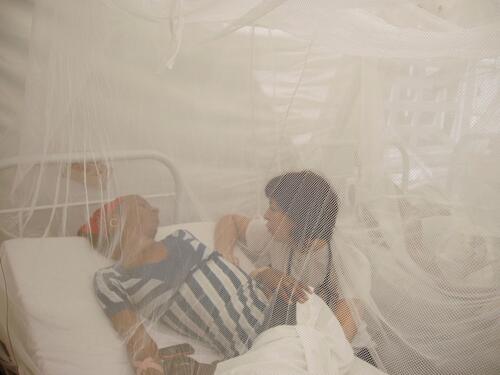The outbreak is the first ever in Cape Verde and is the biggest reported in Africa.
The Cape Verde Ministry of Health has reported 13,187 suspected cases of dengue fever in four islands within the archipelago between October 1 and November 9. The outbreak is the first ever in Cape Verde and is the biggest reported in Africa. The number of cases has increased sharply since the beginning of November, reaching 1,000 cases per day. Ninety-three cases of dengue haemorrhagic fever have been reported and six people have already died.
The international response to the dengue fever outbreak has been positive, with public health experts and international medical teams now providing medical support, case management, surveillance, and diagnostics.
Médecins Sans Frontières (MSF) has sent a team to support the hospital in Sao Filipe, the main town on the island of Fogo, where between 100 and 150 new dengue cases are being reported every day. Fogo has a population of around 40,000 people. More MSF medical staff have been sent to support health centres in Cape Verde’s capital city Praia on Santiago Island.
“This is the first reported epidemic of dengue fever in Cape Verde and it is huge,” said Dr Iza Ciglenecki, MSF’s Emergency Coordinator in Cape Verde. “With globalisation, dengue fever is appearing in places where it has previously been unknown, it is the most rapidly spreading mosquito born disease in the world.”
Dengue is a viral disease, transmitted by Aedes mosquitoes. Symptoms are similar to flu or malaria, with a high fever, headaches, and muscle pain. Most patients recover, but in a small proportion of cases the disease can progress into a more severe form.



